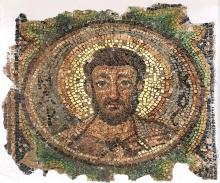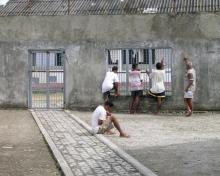Basic international humanitarian law (IHL) rules applicable to this situation:
Whenever possible, and particularly after an engagement, each party to the conflict must, without delay, take all possible measures to search for, collect and evacuate the dead without adverse distinction.
Parties to the conflict must endeavour to facilitate the return of the remains of the deceased upon request of the party to which they belong or upon the request of their next of kin.
To facilitate identification of the dead, each party to the conflict must record all available information prior to disposal and mark the location of the graves.
Each party to the conflict must take all feasible measures to account for persons reported missing in connection with armed conflict and must provide their family members with any information it has on their fate.
The case in brief
In 2020, longstanding tensions between Armenia and Azerbaijan regarding control of the region of Nagorno-Karabakh erupted into fresh armed conflict. Thousands of soldiers were killed, with families on both sides of the border unable to retrieve and bury their relatives’ remains.
On 29 October and 14 November 2020, Armenia and Azerbaijan exchanged human remains in accordance with mutual agreements. The support and facilitation offered by foreign governments and organizations such as the ICRC and the Organization for Security and Co-operation in Europe (OSCE) may have contributed to this demonstration of respect for IHL.
IHL compliance highlights
- On 10 October 2020, Armenia and Azerbaijan signed an agreement brokered by the Russian Federation committing to a temporary humanitarian ceasefire and further talks, mediated by the OSCE, aimed at reaching a permanent peace settlement. The ceasefire was intended, among other things, to enable the parties to facilitate the safe recovery and repatriation of those killed in the fighting, in cooperation with the ICRC and the OSCE.
- On 29 October, with the ICRC serving as neutral intermediary, Armenia and Azerbaijan duly conducted a first exchange of human remains. A further such exchange took place on 14 November, following an agreement between the parties to cease hostilities completely.
Case prepared by Maria Querol Guillen and Eliza Walsh, LL.M students at Leiden University, under the supervision of Professor Robert Heinsch, as well as Ashley Peltier (Researcher), Kalshoven-Gieskes Forum, Leiden University.
A. FIRST AGREEMENT AND EXCHANGE OF REMAINS OF THE DEAD
[Source: Ministry of Foreign Affairs of the Russian Federation, ‘Statement by the foreign ministers of the Russian Federation, the Republic of Azerbaijan and the Republic of Armenia’, 10 October 2020, available at https://www.politicalsettlements.org/wp-content/uploads/2020/10/Armenia… , accessed on 20 May 2022]
In response to the Statement by President of the Russian Federation Vladimir Putin and in accordance with the agreements reached by President of the Russian Federation Vladimir Putin, President of the Republic of Azerbaijan Ilham Aliyev and Prime Minister of the Republic of Armenia Nikol Pashinyan, the following steps have been agreed:
1. A humanitarian ceasefire is declared for 12 pm on October 10, 2020 to exchange prisoners of war and other detained persons, as well as the remains of the dead, in accordance with the criteria of the mediator, the International Committee of the Red Cross.
[…]
3. The Republic of Azerbaijan and the Republic of Armenia are launching substantive talks mediated by the OSCE [Organization for Security and Co-operation in Europe] Minsk Group Co-Chairs to reach a peace deal as soon as possible on the basis of core settlement principles.
[...]
[Source: ICRC, ‘Nagorno-Karabakh conflict: ICRC facilitates transfer of combatants killed in action’, 29 October 2020, available at https://www.icrc.org/en/document/nagorno-karabakh-conflict-icrc-facilitates-transfer-combatants-killed-action, accessed on 31 January 2021]
Today's operation [29 October 2020] took place following an agreement between the sides. The remains were transferred across the international border from Azerbaijan to Armenia. The ICRC took part in the humanitarian operation as a neutral intermediary.
[…]
“Even in the deadliest of conflicts, the ICRC, with our long-standing record as a neutral intermediary, sees how shared humanitarian objectives can help parties find common ground, whether through the transfer or return of prisoners, the evacuation of wounded, cross-line humanitarian activities, or the respectful handover of mortal remains,” said Martin Schüepp, ICRC Eurasia Regional Director in Geneva.
“The burial of a husband, father or son is essential to help bring closure to the family left behind.”
The transfer of bodies took place in coordination with the co-chairs of the Minsk Group and the personal representative of the Organization for Security and Co-Operation in Europe (OSCE) chairman-in-office.
[…]
Schüepp added: "Operations like this are hugely important for the families concerned. Without receiving the remains of their loved ones, they live with the pain of loss compounded by the pain of uncertainty. Not knowing the fate and whereabouts of their loved ones can be agonising."
“Through this operation, we hope that families will be able to find some closure. They can say goodbye to their loved ones by giving them a dignified burial according to their traditions.”
[...]
B. SECOND AGREEMENT AND EXCHANGE OF REMAINS OF THE DEAD
[Source: ReliefWeb ‘Statement by President of the Republic of Azerbaijan, Prime Minister of the Republic of Armenia and President of the Russian Federation (S/2020/1104)’, 11 November 2020, available at https://reliefweb.int/report/armenia/statement-president-republic-azerbaijan-prime-minister-republic-armenia-and-president, accessed on 31 January 2021]
We, President of the Republic of Azerbaijan Ilham Aliyev, Prime Minister of the Republic of Armenia Nikol Pashinyan and President of the Russian Federation Vladimir Putin, state the following:
1. A complete ceasefire and termination of all hostilities in the area of the Nagorno-Karabakh conflict is declared starting 12:00 am (midnight) Moscow time on November 10, 2020. The Republic of Azerbaijan and the Republic of Armenia, hereinafter referred to as the “Parties,” shall stop in their current positions.
[...]
8. The Parties shall exchange prisoners of war, hostages and other detained persons, and dead bodies.
[...]
[Source: South China Morning Post, ‘Armenia and Azerbaijan exchange their dead during ceasefire’, 15 November 2020, available at https://www.scmp.com/news/world/russia-central-asia/article/3109898/armenia-and-azerbaijan-exchange-bodies-dead-soldiers?utm_term=Autofeed&utm_medium=Social&utm_content=article&utm_source=Twitter#Echobox=1605397769 , accessed on 20 May 2022]
Armenia and Azerbaijan on Saturday [14 November 2020] exchanged the bodies of a number of dead soldiers following the arrival of Russian troops to oversee a ceasefire in the disputed Nagorno-Karabakh region.
Azerbaijan handed over to Armenia the bodies of an unspecified number of soldiers killed during clashes over the strategically important town of Shushi - Shusha in Azerbaijani - which was retaken by Azerbaijan, the country’s Defence Ministry said.
In return, Armenia handed over the bodies of six soldiers to Azerbaijan. The exchange of corpses was agreed at the beginning of the week in an agreement to end all fighting.
[...]
C. INFLUENCE AND ASSISTANCE FROM THE INTERNATIONAL COMMUNITY
[Source: ‘UN Secretary-General’s Spokesman – on the situation between Armenia and Azerbaijan’, 25 October 2020, available at https://www.un.org/sg/en/content/sg/statement/2020-10-25/un-secretary-generals-spokesman-the-situation-between-armenia-and-azerbaijan, accessed on 31 January 2021]
The [United Nations] Secretary-General welcomes the joint statement issued today by the Governments of the United States, Armenia and Azerbaijan announcing that the humanitarian ceasefire agreed in Moscow on 10 October and reaffirmed in Paris on 17 October will take effect at 8 a.m., local time, on Monday 26 October. He commends the facilitation efforts of the United States, with the support of the OSCE Minsk Group Co-Chairs.
The Secretary-General reiterates his appeal to the parties to fully implement their [10 October] agreement without delay based on this understanding and to resume substantive negotiations without preconditions under the auspices of the OSCE Minsk Group Co-Chairs. He also calls on the parties to allow safe and unimpeded access to humanitarian workers and delivery of humanitarian assistance and services to civilians in and around the Nagorno-Karabakh conflict zone.
The Secretary-General expects the parties to abide by all their commitments and to work jointly together with the OSCE Minsk Group Co-Chairs to make concrete steps towards a peaceful resolution of the Nagorno-Karabakh conflict.
[...]
[Source: OSCE, ‘Press Statement by the Co-Chairs of the OSCE Minsk Group’, 30 October 2020, available at https://www.osce.org/minsk-group/468984, accessed on 31 January 2021]
The Co-Chairs of the OSCE Minsk Group (Igor Popov of the Russian Federation, Stephane Visconti of France, and Andrew Schofer of the United States of America) released the following statement today:
[...]
The Co-Chairs once again called on the sides to implement, in full, their commitments, including the immediate establishment of a humanitarian ceasefire, in accordance with the October 10 Moscow Joint Statement, which the sides reaffirmed with Paris on October 17 and in Washington on October 25.
Without prejudice to the implementation of the ceasefire or other commitments, the sides agreed to take a number of steps on an urgent basis, including:
[…]
The sides will actively engage in the implementation of the recovery and exchange of remains on the battlefield by providing the ICRC and PRCiO [Personal Representative of the OSCE Chairperson in Office] the necessary safety guarantees for facilitation;
[...]
[Source: OSCE, ‘With new agreement over Nagorno-Karabakh war, PA President hopes for long-lasting peace, condemns violence against parliamentarians’, 10 November 2020, available at https://www.osce.org/parliamentary-assembly/469908, accessed on 31 January 2021]
Following the signature of a trilateral statement between Armenia, Azerbaijan, and the Russian Federation to end fighting in the Nagorno-Karabakh region, OSCE PA [Parliamentary Assembly] President George Tsereteli (MP, Georgia) issued the following statement:
“I hope the signature of the agreement that puts a stop to the war in the Nagorno-Karabakh region will finally protect the lives of civilians trapped in the conflict zone. I deeply regret the many lives lost in recent weeks, and, as guns fall silent, I encourage the sides to proceed without delay with exchanges of prisoners of war, detainees, and the bodies of fallen combatants.
“The road to lasting peace is often harder than war. I therefore urge all sides to recommit themselves to peaceful negotiations, in good faith, to allow the safe return of internally displaced persons and refugees, reach a long-term and comprehensive settlement of this conflict, and at long last build a future together.”
[...]
Discussion
I. Classification of the Situation and Applicable law
1. How would you classify the Nagorno-Karabakh conflict? What additional information would you require to make this determination? (GC I-IV, Art. 2, Art. 3; P I, Art. 1)
2. Does a ceasefire agreement put an end to a conflict? Do IHL obligations have a time limit? (P I, Art. 3(b), Art 34; GC I, Art. 15, Art. 17)
II. Obligations Regarding Dead Persons
3. What IHL obligations do the parties to the conflict have with regard to dead persons? Would your answer change if you had classified the conflict differently? (GC I-IV, Art. 3; GC I, Art. 15; GC, Art. 16; P I, Art.1, Art. 34; CIHL Rule 112)
4. Document A, Source 2 states "[t]he burial of a husband, father or son is essential to help bring closure to the family left behind." What rights do families of the dead have under IHL? Do families have a right to know the fate of their relatives? (CIHL, Rule 114; CIHL, Rule 117; P I, Art. 32, Art. 34 (2)(c))
III. Elements Contributing to Respect for IHL
5. (Documents A, B, and C) The OSCE Co-Chairs and the UN Secretary-General called on Armenia and Azerbaijan to implement the humanitarian ceasefire and comply with their IHL obligations. How do you think public pressure may have influenced the parties’ compliance? Do you think complying with IHL can positively impact the international reputation of a party to an armed conflict?
6. (Documents A, B, C) What was the role of facilitators, such as the ICRC and OSCE, in this instance of IHL compliance? How important was this facilitation? Similarly, what effect did the mediation and practical assistance offered by other governments have on the exchange of the dead?
7. (Document A, Source 2) Martin Schüepp, ICRC Eurasia Regional Director, stated that “[o]perations like this are hugely important for the families concerned.” Do you think providing closure to families was a motivating factor for Armenia and Azerbaijan to exchange remains?
8. (Document C, Source 3) OSCE PA President George Tsereteli stated that “[t]he road to lasting peace is often harder than war”. In what ways do you think that exhumations and identification of the dead can help reconcile societies after a conflict? Do you think there is a link between the exchange of remains of the dead and the peace process between states?




